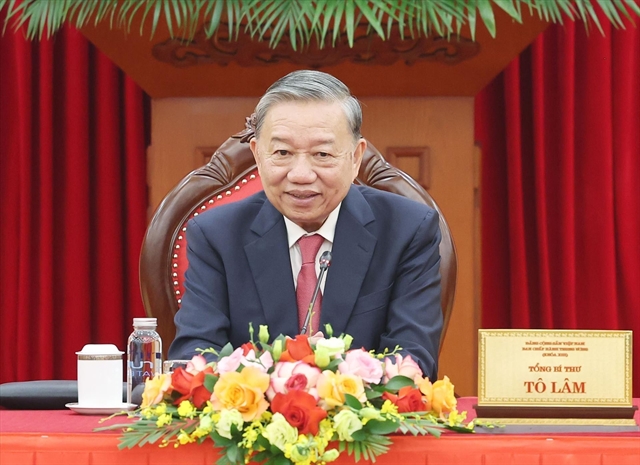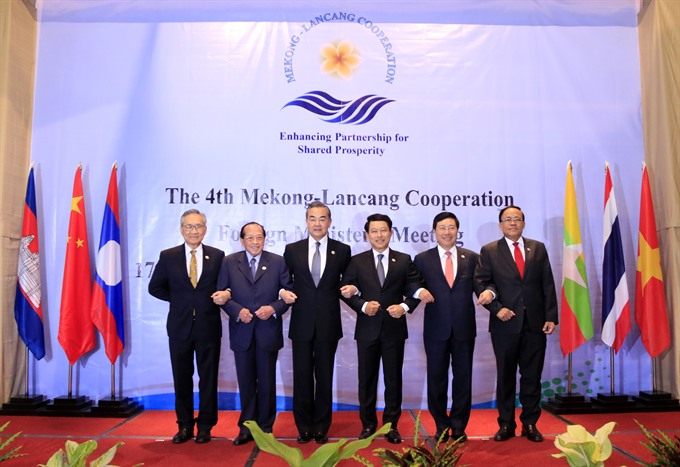 Politics & Law
Politics & Law

Mekong-Lancang co-operation needs to focus on maintaining an efficient working model and ensure projects bring benefits for all member countries.
 |
| Deputy Prime Minister Phạm Bình Minh (second, right) poses with other delegates at the meeting yesterday.—VNA/VNS Photo Phạm Kiên |
HÀ NỘI — Mekong-Lancang co-operation needs to focus on maintaining an efficient working model and ensure projects bring benefits for all member countries.
It should also pay more attention to boost co-ordination between regional co-operative mechanisms, especially the Association of Southeast Asian Nations (ASEAN) and the Mekong River Commission (MRC).
That was the message from Deputy Prime Minister cum Minister of Foreign Affairs Phạm Bình Minh yesterday speaking at the 4th Co-operation Foreign Ministers’ Meeting, themed “Enhancing Partnership for Shared Prosperity”, in Luang Prabang, Laos.
Minh was joined at the meeting by ministers of foreign affairs of Cambodia, Laos, Myanmar, Thailand and China.
Minh said he appreciated efforts made by MLC nations to carry out the Sanya Declaration and the five-year Plan of Action for 2018-22, approved at the Mekong-Lancang Co-operation Leaders’ Meeting at the beginning of this year.
He said it was necessary to mobilise resources to implement five prioritised fields, consisting of water resource connection, production capacity, cross-border economic collaboration, agriculture as well as poverty reduction.
He suggested the member countries address bottlenecks in commodity circulation, work to open up the Chinese market for farm produce from Mekong countries, help enterprises understand more about import-export regulations, support technology transfer to help Mekong countries develop rice and food crop varieties adaptive to climate change, and intensify management over cross-border labour.
Minh stressed the six MLC countries needed to reform the way of thinking and working methods in their co-operation, management and sustainable use of Mekong River water source to successfully cope with common challenges in the region.
At the meeting, the ministers agreed to step up the implementation of the five-year Plan of Action, and consider initiatives to boost co-operation in production capacity, regional connectivity, trade, energy, customs, health, education and the building of a MLC economic corridor.
They also reached a consensus on strengthening MCL’s connectivity with national development strategies and relevant regional and sub-regional co-operative mechanisms such as ASEAN, MRC, the Greater Mekong Subregion (GMS) and the Ayeyawady-Chao Phraya-Mekong Economic Co-operation Strategy (ACMECS). — VNS




